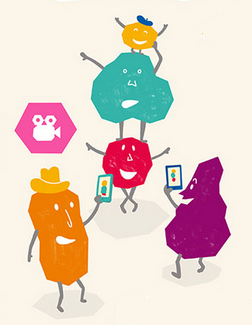
Image screenshot of Vyclone
For the past two years, I’ve gone to South By Southwest’s (SXSW) Interactive Festival in search of ideas and tools to bring to journalism.

Image screenshot of Vyclone
In many countries, people have limited or no access to apps in their own languages, to advanced education on how to use technology for analyzing and sharing information and to hardware that many at SXSW might take for granted.
I learned about new apps and platforms at SXSW that could help more people get the information they need.
Read the post here.
The International Journalists' Network, IJNet, keeps professional and citizen journalists up to date on the latest media innovations, online journalism resources, training opportunities and expert advice. ICFJ produces IJNet in seven languages: Arabic, Chinese, English, Persian, Portuguese, Russian and Spanish. IJNet is supported by donors including the John S. and James L. Knight Foundation.